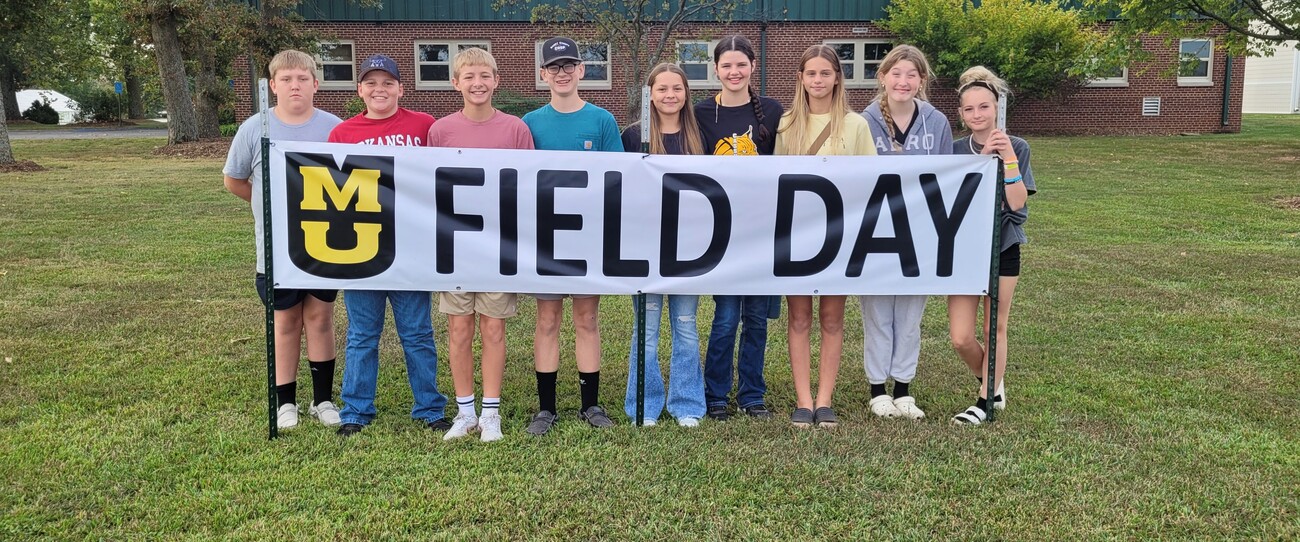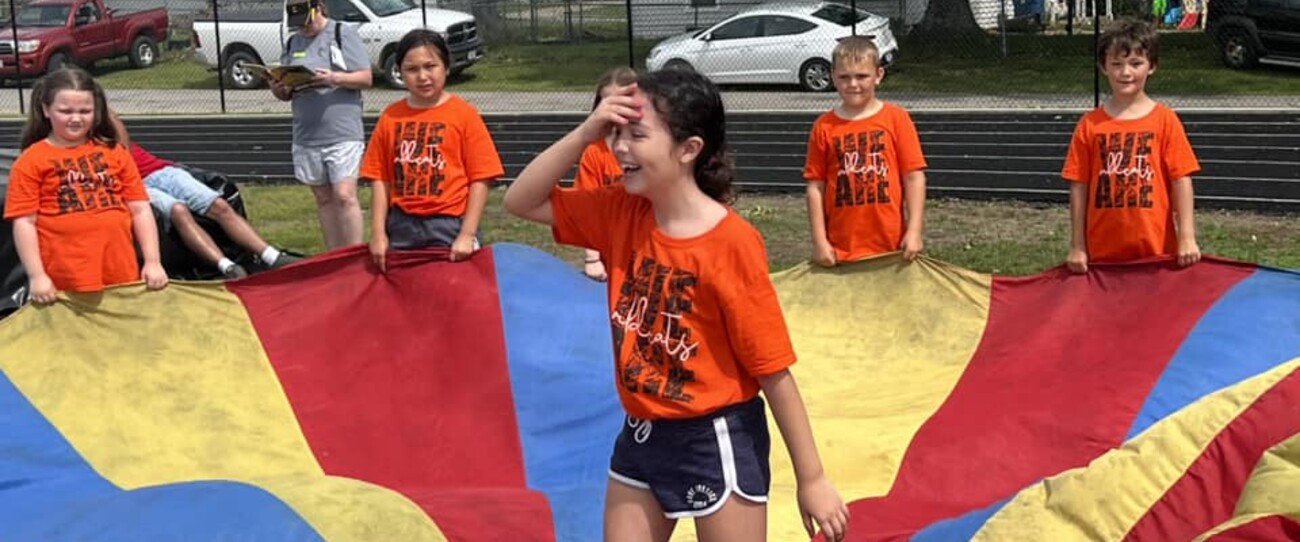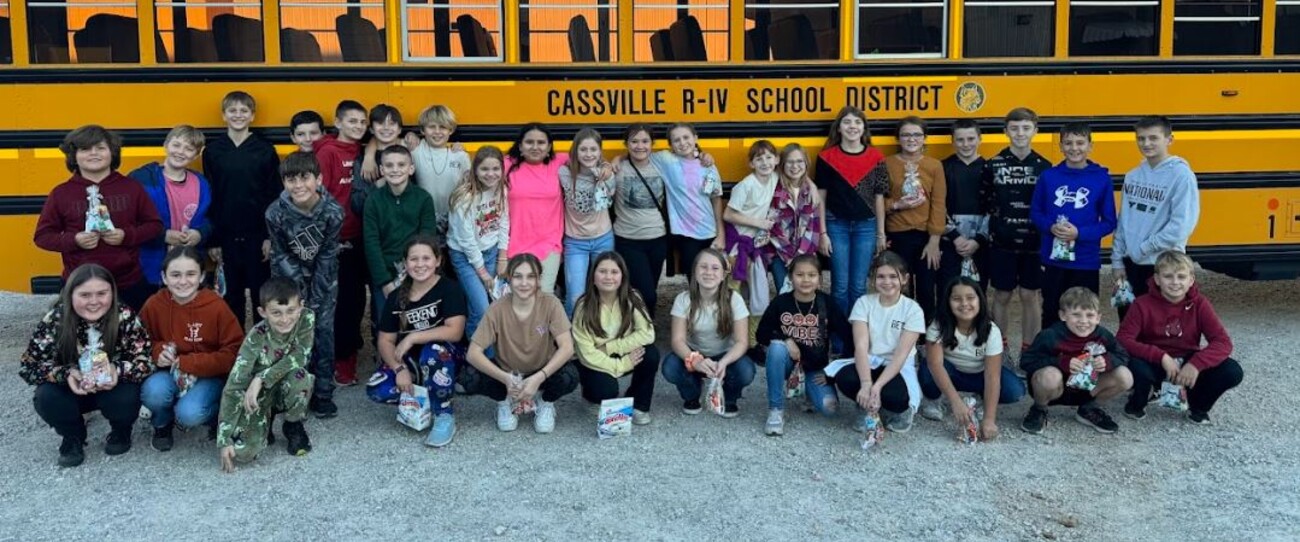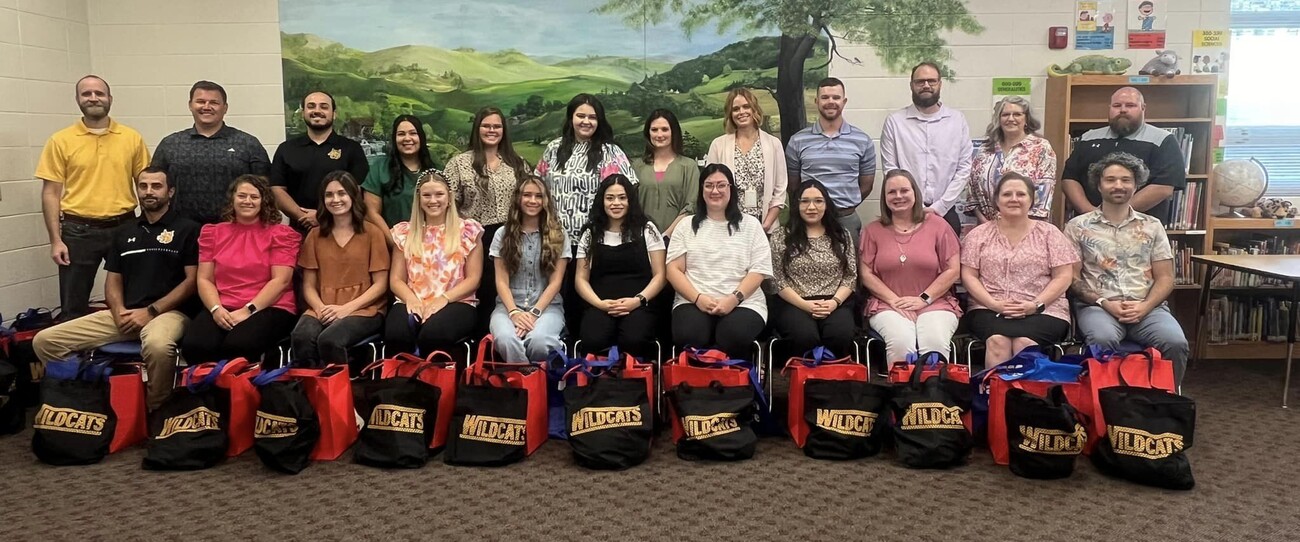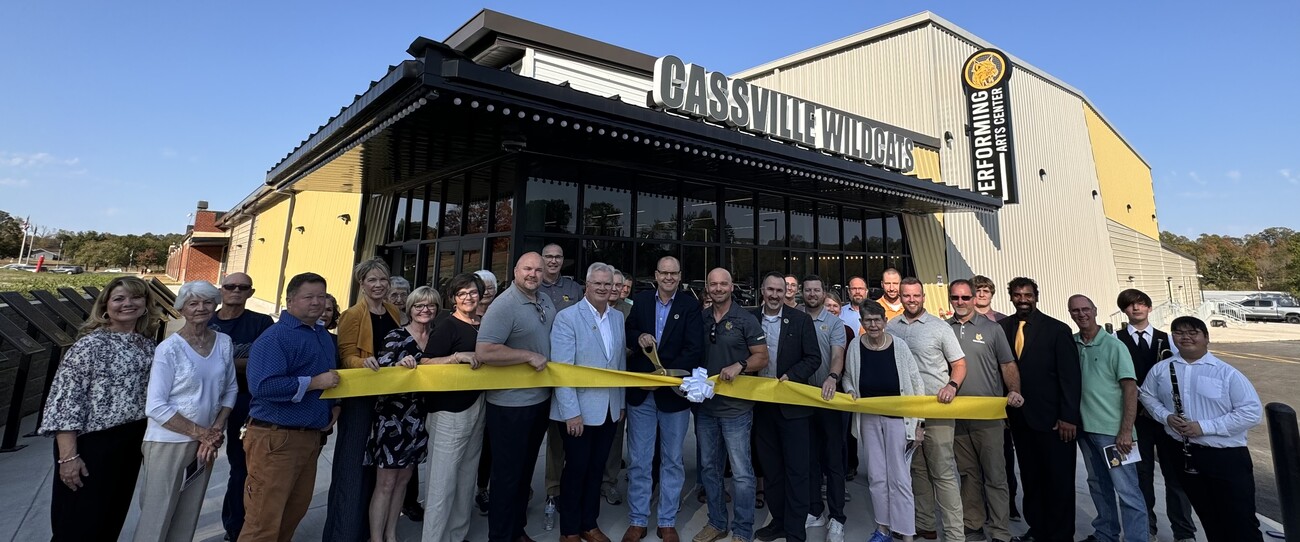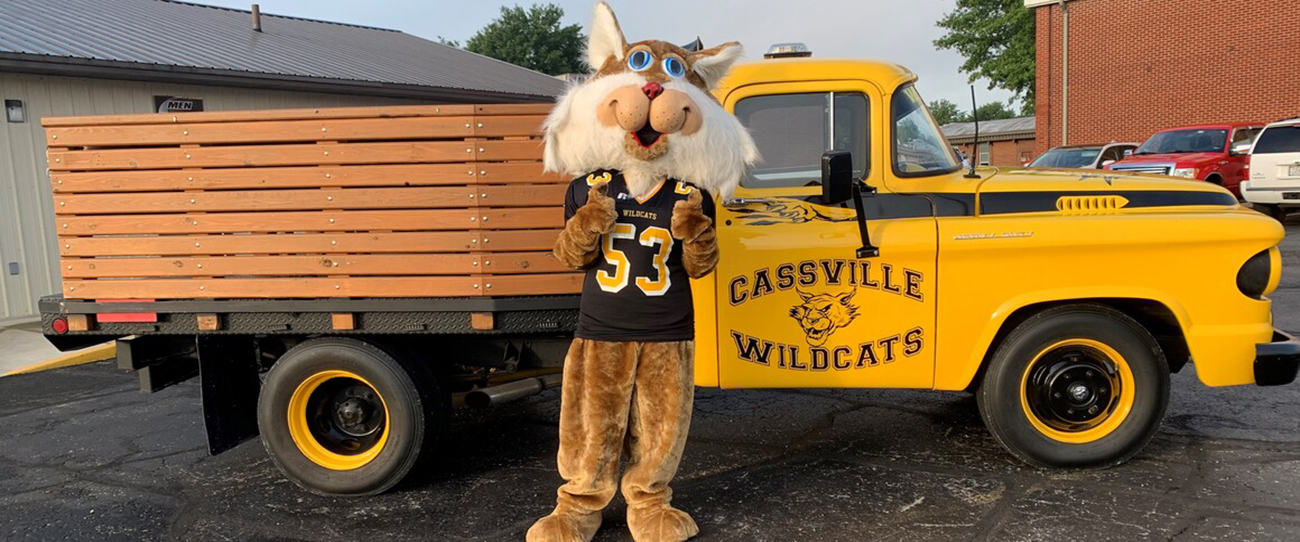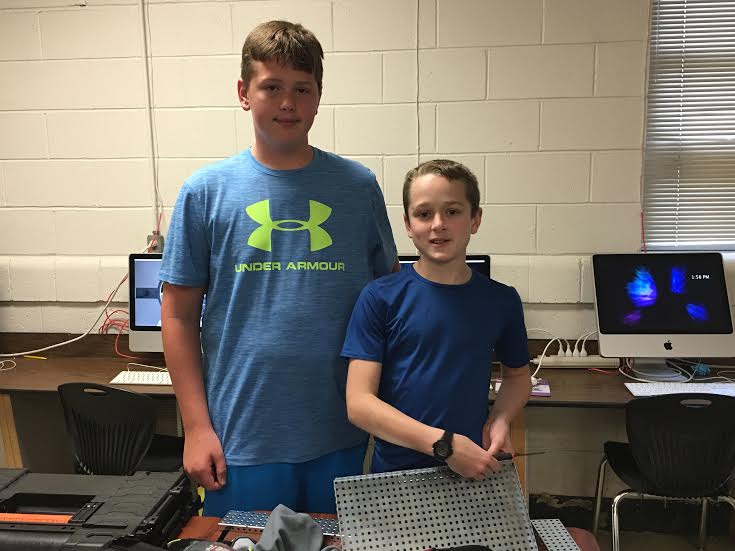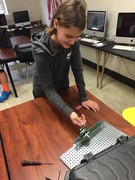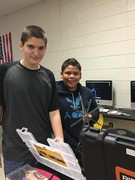CASSVILLE MIDDLE SCHOOL “PIONEERS”
In the spirit of 19th Century Westward Expansion started when Thomas Jefferson orchestrated the Louisiana Purchase to improve the nation’s health, Cassville Middle School started this school year following in the footsteps of the earliest American pioneers by offering several innovative courses to keep the school moving forward—and staying healthy. Much like Jefferson believed the success of the republic “depended on an independent, virtuous citizenry for its survival”, CMS Administration and Staff believe that their success depends on providing opportunities for students to grow their skills to meet the changing, evermore competitive demands of an interconnected world. Where Jefferson saw opportunity for the young country to flourish through land ownership and independence, the staff at CMS are pushing students to take ownership of their learning through courses that promote creativity, analytical thought, problem solving, and a better understanding of citizenship in a digital world.
Project Lead The Way
This summer CMS joined Project Lead The Way (PLTW), and Indiana-based non-profit organization dedicated to providing curriculum and services in Science, Technology, Engineering, and Math (STEM) education. With 48 counties represented in Missouri offering programs through PLTW, CMS becomes the first facility in Barry County to teach this project-based curriculum. Courses in Design and Modeling, Vex Robotics, and Intro to Computer Science are offered to current 7th and 8th grade students as electives. A brief description of each is below:
Design Models (DM)
Students apply the design process to solve problems and understand the influence of creativity and innovation in their lives. They work in teams to design a playground and furniture, capturing research and ideas in their engineering notebooks. Using Autodesk® design software, students create a virtual image of their designs and produce a portfolio to showcase their innovative solutions.
Automation Robotics (AR)
Students trace the history, development, and influence of automation and robotics as they learn about mechanical systems, energy transfer, machine automation, and computer control systems. Students use the VEX Robotics® platform to design, build, and program real-world objects such as traffic lights, toll booths, and robotic arms.
Introduction to Computer Science 1 (ICS-1)
Studies show that by 2018, 1.4 million job openings will be available for computer specialists. In this unit, students discover the principles of this fast-growing field by focusing on creativity and an iterative design process as they create their own basic apps using MIT App Inventor.
Introduction to Computer Science 2 (ICS-2)
Students continue to explore the fundamentals of the stimulating career path of computer science. They venture into text programming through Python and, in the final problem, develop an app to crowdsource and analyze data on a topic of their interest.
To teach just one of the courses above, teachers are put through week-long “boot camps” of instruction at various locations throughout the state. CMS Industrial Tech teacher, Robbie Artherton attended two such sessions this summer at Rolla S & T to become certified in both DM and AR instruction. CMS Technology teacher, Jake Forste, traveled to UCM’s Lee’s Summit campus for his week of training in ICS 1 and 2. Both teachers were amazed at the structure, the intensity, and the fun they had in doing the exact same projects they will be asking their students to do this fall—on big difference, they did it all in one week, not a semester! The teaching process for a PLTW class is much different than what most are used to. Teachers are instructed to provide the guidance and resources to students, then to step back and monitor progress, teamwork skills, and guide students. Kids have vivid imaginations and are prone to think outside the box when presented problems with no real solutions and only the result in mind. Teachers find themselves learning right along with kids over time. There are currently 70 students enrolled in these courses 1st semester. CMS hopes to expand offerings in the future to include the biomedical field and forensic science.
Computer Literacy
Another “pioneering” offering this year at CMS is the inclusion of Computer Literacy classes for all 6th grade students. It took some creative scheduling to maintain ideal numbers in core classes, but students all 6th graders will receive a semester of computer literacy with a targeted focus on digital citizenship. As younger and younger children have internet capable technology in their fingertips on a daily basis, the need for helping them understand a digital footprint and its effect on human life is vital. Topics covered in the class taught by CMS Social Studies teacher, Chris Seymour, will include cyber-bullying, digital footprint, written communication forms, reputable resources, and social media.
Study Skills
CMS Communication arts teacher Shari Rhea will be teaching 6th grade students how to organize their life as they transition into middle school and the added inherent responsibilities. While the topic is not new, it is to CMS. With no curriculum to guide her, Shari will use her experience and expertise to help students understand how to summarize notes, maintain a calendar, prioritize information, even how to prepare both mentally and physically for assessments. Research consistently shows that effective communication skills are a top factor in post-high school success and lifetime wages earned. The goal is to promote good habits that will have lasting positive effects throughout their education and career.
Publications
Most people think of Publications as the typical high school yearbook course. CMS Library Media Specialist, Becky Haynes is taking the premise of that course and expanding it greatly this year. Typically, CMS has used enrichment periods to have students learn cameras, take pictures, and edit articles for the annual yearbook. This process greatly limited both participant numbers and the quality of the product, given it was only open to academically strong students and the time was 30 minutes a couple days per week. A class was added to the schedule this year that will open the class to more students for an entire period on a daily basis. Twenty-four students are currently enrolled in the class. The Library Media Center has several resources for students to use, including a green screen with movie production software for ipads. Students will certainly be using the latest in digital photography equipment to snap awesome shots for the yearbook, but they will also be learning to produce and edit short films and build websites. These students will also get to hone their acting skills as they produce instructional videos on the CMS Positive Behavior System (Wildcat Expectations).

